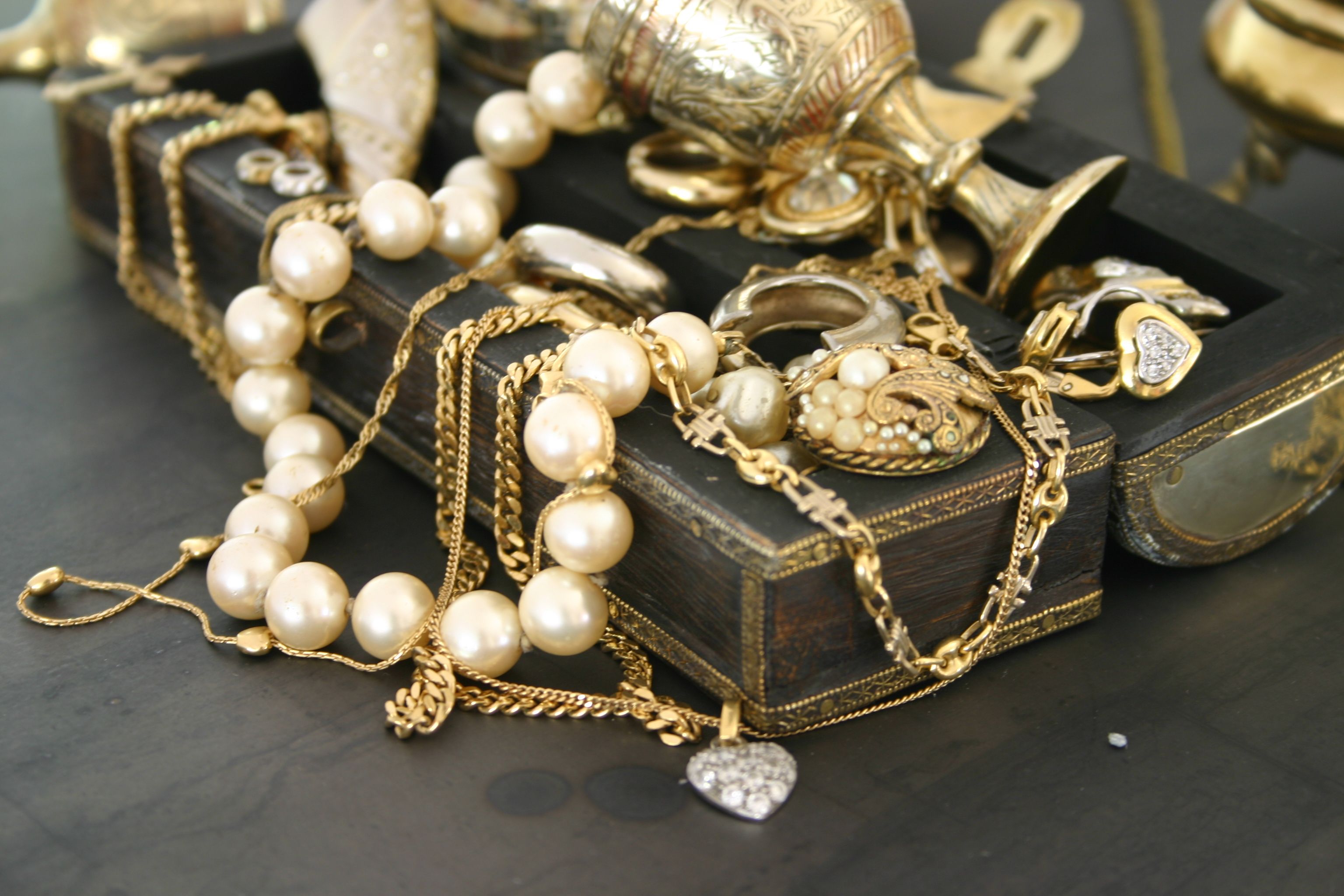Introducing the Rich History Behind Exquisite Estate Precious Jewelry Parts
The exploration of splendid estate fashion jewelry items unveils a rich tapestry of history, showing the societal worths and artistic activities of their time. As we examine the intricate details and provenance of these items, one need to take into consideration the profound stories they hold-- stories that may challenge our understanding of appeal and importance in the globe of fashion jewelry.
The Beginnings of Estate Fashion Jewelry
The beginnings of estate precious jewelry can be mapped back numerous centuries, mirroring an abundant tapestry of cultural and historical influences. Originally, precious jewelry functioned as a sign of riches and status among aristocrats and the aristocracy. As various civilizations arised, unique styles and methods progressed, often intertwined with the traditions and beliefs of their respective cultures.

As cultures proceeded, estate precious jewelry began to stand for even more than simple adornment; it became a kind of individual expression, with items frequently gave with generations. This transfer of ownership imbued each product with stories and memories, even more boosting its value. Thus, estate fashion jewelry incorporates a myriad of influences, encapsulating the significance of human experience, virtuosity, and history, making it a significant facet of the jewelry globe today.

Significant Historical Periods
Throughout history, different eras have significantly influenced the layout and importance of estate precious jewelry. Each duration brought forth distinct styles, materials, and cultural contexts that formed the virtuosity of jewelry-making.
The Victorian age (1837-1901) noted a profound shift in jewelry style, defined by charming concepts and complex craftsmanship. During this time around, fashion jewelry commonly symbolized individual sentiment and was regularly used to honor substantial life events. The Art Nouveau activity (1890-1910) followed, emphasizing natural kinds and moving lines, drawing ideas from nature and the human figure.
The Roaring Twenties heralded the Art Deco period (1920-1939), renowned for its geometric shapes, strong colors, and a sense of modernity. This period reflected the spirit of the Jazz Age and the desire for deluxe and opulence. Complying With World War II, the Mid-Century Modern age (1945-1960) accepted simpleness and performance, showcasing tidy lines and innovative products.
Each of these historical eras has left an enduring mark on estate jewelry, not only in regards to aesthetic allure however also in the way these items show the social worths and technical improvements of their time.
Iconic Design Attributes
Often, legendary style qualities of estate fashion jewelry reveal a rich tapestry of social influences and imaginative motions. estate jewelry near me. Each item works as an aesthetic narrative, showcasing the stylistic preferences of its era and the artisans' mastery. The detailed lacework job usual in Victorian precious jewelry exemplifies the duration's fascination with nature and love, often including concepts such as blossoms check here and leaves.
The Art Nouveau movement introduced streaming lines and natural kinds, stressing the elegance of natural environments. On the other hand, the bold geometric patterns of Art Deco precious jewelry mirror the modernist principles of the 1920s, defined by symmetry and a concentrate on commercial products.
Furthermore, the use of lively gemstones and ingenious methods, such as enameling and pavé settings, better identifies these items. Color palettes commonly represent details cultural contexts, with certain stones representing riches or condition.
Famous Estate Fashion Jewelry Parts
Estate jewelry encompasses a variety of renowned items that have actually gone beyond time, each informing an unique story of its origin. Amongst these, the "Napoleon Diamond Necklace," originally crafted for Empress Josephine, exemplifies luxury with its intricate design and historic significance. An additional renowned item is the "Cartier Panther Arm Band," which showcases the iconic panther motif that has come to be associated with the Cartier name, mixing artistry with a bold declaration.
The "Bulgari Serpenti" collection, with its sinuous, snake-inspired layouts, has captivated collection agencies considering that the mid-20th century, symbolizing high-end and attraction. In addition, the "Maharaja Pendant," decorated with a fascinating variety of gems, shows the magnificence of Indian aristocracy and the rich social heritage related to estate precious jewelry.

The Value of Provenance
Provenance plays an important role in establishing the value of estate precious jewelry, as it offers a documented history that boosts the item's significance and worth. An item with a well-documented family tree usually commands higher prices as a result of its organization with noticeable numbers, historic occasions, or imaginative activities. Collectors and capitalists alike are attracted to items that narrate, as these narratives add layers of implying past plain visual appeals.
The verification of provenance can include different forms of documentation, such as initial acquisition invoices, evaluations, and exhibition documents. In addition, oral backgrounds passed down with families can contribute to the narrative, enhancing the allure of the precious jewelry (estate jewelry). The even more qualified and in-depth the provenance, the most likely it is to bring in focus in the marketplace
In addition, provenance can mitigate worries relating to credibility; things with recognized histories are less likely to be seen as recreations or counterfeits. This way, provenance not only raises the intrinsic worth of estate precious jewelry but also safeguards the collector's investment. advice Ultimately, a compelling provenance transforms an item from a plain things right into a treasured artefact of background, making it a desired enhancement to any collection.
Final Thought
The exploration of estate fashion jewelry reveals a profound link in between virtuosity and historic context. Eventually, the abundant narratives behind estate jewelry not only celebrate specific virtuosity but also envelop the more comprehensive tapestry of human history and social advancement.